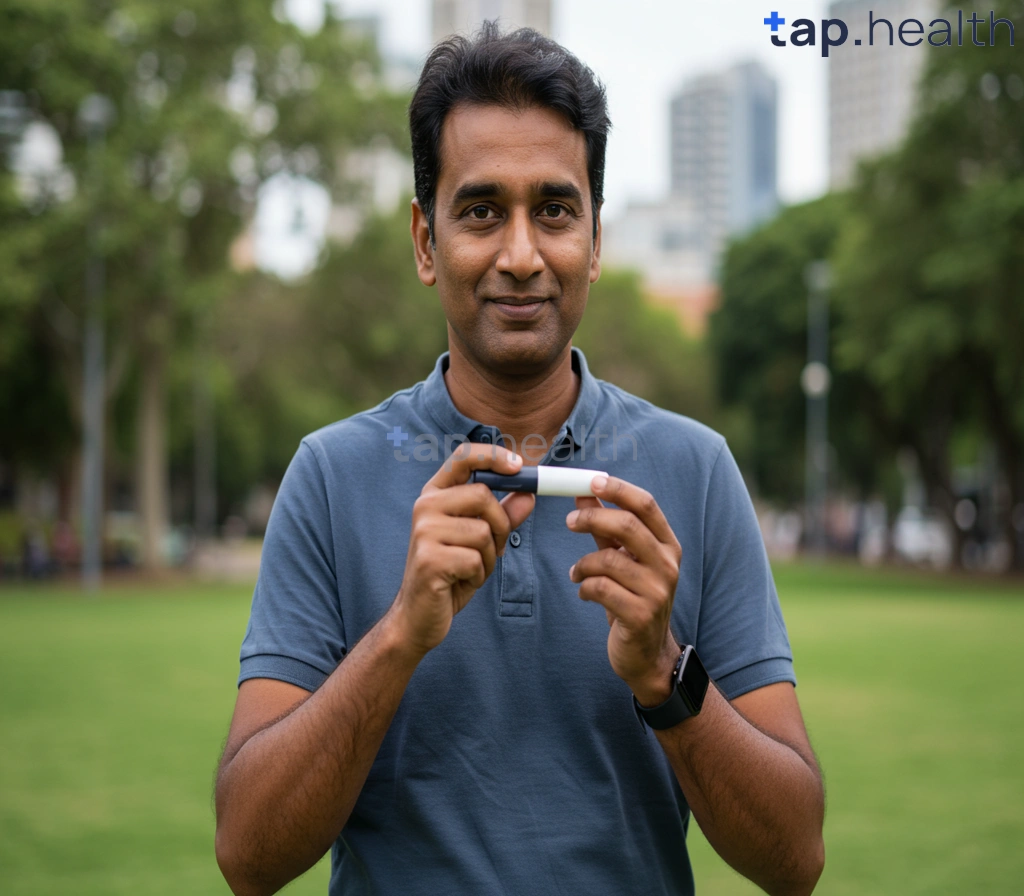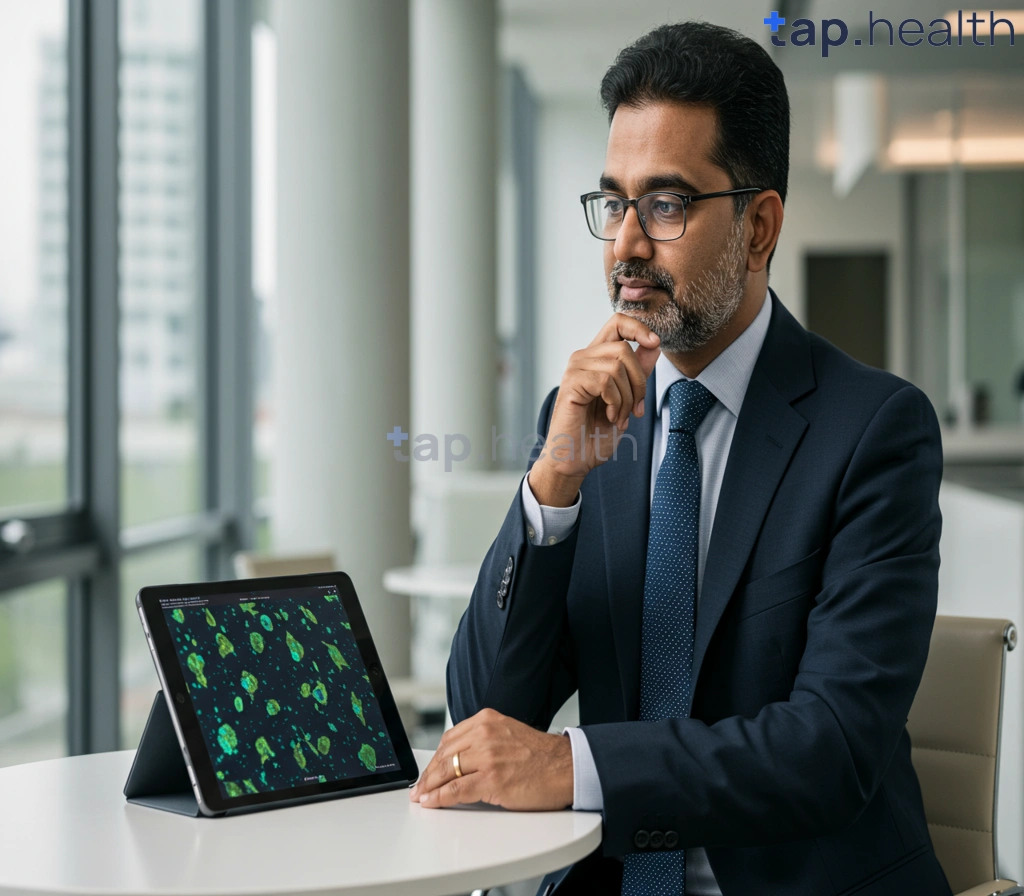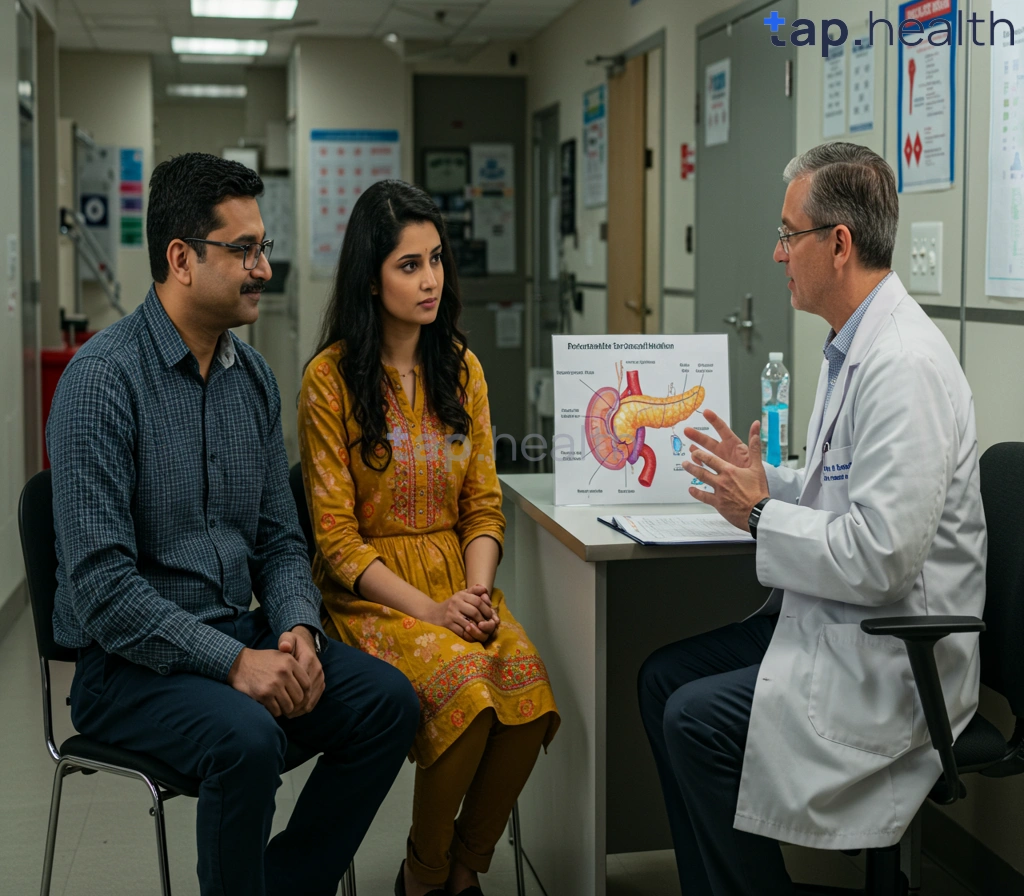Table of Contents
- Beyond Glucose: Mastering Glycemic Control in Type 1 Diabetes
- Advanced Strategies for Managing Type 1 Diabetes Blood Sugar
- Improving Your Type 1 Diabetes Management: A Guide to Glycemic Control
- What is Glycemic Control and How Can I Improve Mine?
- Top 5 Tips for Better Blood Sugar Control with Type 1 Diabetes
- Frequently Asked Questions
- References
Living with type 1 diabetes means navigating a complex world of blood sugar management. While keeping glucose levels in check is undeniably crucial, true success extends far beyond simply managing glucose. This blog post delves into the multifaceted approach to Beyond Glucose: Improving Glycemic Control in Type 1 Diabetes, exploring strategies that go beyond just insulin and blood sugar monitoring. We’ll uncover practical tips and insights to help you achieve better overall health and well-being, improving your quality of life significantly. Let’s explore how a holistic approach can transform your diabetes management journey.
Beyond Glucose: Mastering Glycemic Control in Type 1 Diabetes
Managing type 1 diabetes, especially in hot and humid climates prevalent across many Indian and tropical countries, presents unique challenges. The approximately 2 million Americans living with type 1 diabetes, including about 304,000 children and adolescents, face similar struggles, though their environment differs. Effective glycemic control goes beyond simply monitoring blood glucose levels.
Beyond Blood Sugar Monitoring: Holistic Approaches
Hydration is paramount in warmer climates. Dehydration can significantly impact blood glucose levels, leading to fluctuations and potentially dangerous complications. Staying well-hydrated is crucial, especially during physical activity. Dietary adjustments are also essential. Opt for light, easily digestible meals, especially during peak heat. Spicy foods, common in Indian cuisine, can sometimes affect blood sugar, so mindful portion control is key. Regular physical activity remains vital, but choosing less strenuous activities during the hottest parts of the day is advisable.
Technology and Support Systems
Modern technology offers valuable support. Continuous glucose monitors (CGMs) provide real-time data, allowing for proactive adjustments in insulin dosages. Regular consultations with endocrinologists and diabetes educators are crucial, particularly in regions with varying access to healthcare. Strong community support groups can offer invaluable emotional and practical support in navigating the daily challenges of type 1 diabetes management. For parents of children with Type 1 Diabetes, Tips for Parents of Kids with Type 1 Diabetes: Complete Guide offers helpful advice.
Actionable Steps for Better Control
Prioritize hydration, especially during hot weather. Choose balanced meals suitable for the climate. Consult with healthcare professionals regularly, especially if you live in a region with limited access to advanced medical care. Engage with local diabetes support groups to connect with others facing similar challenges. As we age, managing diabetes can present new challenges. For valuable insights and solutions, refer to Managing Diabetes as You Age: Challenges and Solutions. By adopting these strategies, individuals with type 1 diabetes in India and tropical countries can significantly improve their glycemic control and overall well-being.
Advanced Strategies for Managing Type 1 Diabetes Blood Sugar
Managing type 1 diabetes, especially in hot and humid climates prevalent across India and other tropical countries, presents unique challenges. The impact of heat and humidity on blood sugar levels is significant, requiring a more proactive approach than simply monitoring glucose levels. This is crucial considering that 1.2 million children and adolescents globally live with type 1 diabetes, as highlighted by the IDF Diabetes Atlas, many of whom reside in these regions.
Beyond Glucose Monitoring: Lifestyle Adjustments
Effective management goes beyond frequent glucose checks. Hydration is paramount in tropical climates; dehydration can significantly affect blood sugar control. Prioritize regular water intake, especially during physical activity. Dietary choices also need careful consideration. Opt for foods with a low glycemic index (GI) to prevent rapid spikes in blood sugar. Incorporating spices like turmeric, commonly used in Indian cuisine, may offer additional benefits in managing inflammation often associated with diabetes. For more tips on daily habits that can improve your blood sugar control, check out our guide on 10 Daily Habits for Better Type 1 Diabetes Control.
Medication & Technological Advancements
Modern insulin delivery systems, like insulin pumps, offer precise control over insulin administration, crucial for managing blood sugar fluctuations. Regular consultations with an endocrinologist are essential for adjusting medication based on individual needs and the impact of climate variations. Technological advancements in continuous glucose monitoring (CGM) systems provide real-time data, empowering individuals to make informed decisions regarding their insulin dosages and lifestyle choices.
Community Support & Regional Considerations
Access to diabetes education and support groups is vital, especially in developing regions. Connecting with others living with type 1 diabetes can provide invaluable emotional and practical support. Remember, navigating type 1 diabetes in tropical climates requires proactive management and a comprehensive approach that considers both the environmental factors and the latest advancements in diabetes care. Seek guidance from your healthcare provider to create a personalized management plan.
Improving Your Type 1 Diabetes Management: A Guide to Glycemic Control
Maintaining optimal glycemic control is crucial for managing Type 1 diabetes, especially in hot and humid climates prevalent across India and tropical countries. Studies show that HbA1c levels above 9% are reported in over 30% of diabetes patients, highlighting the need for proactive management strategies. This underscores the importance of going beyond simply monitoring glucose levels.
Beyond Glucose Monitoring: Holistic Approaches
Effective glycemic control involves a multifaceted approach. Regular insulin administration, tailored to individual needs and lifestyle, is paramount. Consistent carbohydrate counting, considering the glycemic index of foods common in Indian and tropical diets (like rice, various lentils, and fruits), is vital for preventing blood sugar spikes. Furthermore, regular physical activity, adapted to the local climate, is crucial. Remember, intense heat can affect insulin sensitivity, so adjusting exercise routines accordingly is key. Understanding how Type 1 diabetes affects homeostasis is also crucial; you can learn more in our article, How Does Type 1 Diabetes Affect Homeostasis? Key Insights.
Lifestyle Modifications for Better Control
Hydration is especially crucial in warmer regions. Dehydration can impact blood sugar levels, so staying well-hydrated is essential. Prioritize sleep, manage stress effectively (yoga and meditation are beneficial), and consider incorporating traditional Indian medicinal practices like Ayurveda, under the guidance of a qualified practitioner, for complementary support in managing your diabetes. Managing other health conditions like high cholesterol is also important. For more information, check out our guide on How to Manage Cholesterol Levels with Diabetes?
Seeking Expert Guidance in Your Region
Accessing quality healthcare is crucial. Connect with an endocrinologist or diabetes specialist familiar with the unique challenges of managing Type 1 diabetes in your region. They can help you develop a personalized management plan that considers your lifestyle, dietary habits, and the climatic conditions you face. Regular check-ups and HbA1c testing are essential for monitoring progress and adjusting your treatment plan as needed. Taking proactive steps towards better glycemic control ensures a healthier and more fulfilling life.
What is Glycemic Control and How Can I Improve Mine?
Glycemic control refers to keeping your blood sugar levels within a healthy range. For people with type 1 diabetes, this is crucial for preventing long-term complications. While the ideal target varies, many guidelines in India and other tropical countries suggest aiming for blood sugar levels below 130/80 mmHg, though some recommend below 140/90 mmHg. Achieving optimal glycemic control isn’t just about managing glucose; it’s about a holistic approach.
Understanding Your Blood Sugar
Regularly monitoring your blood glucose levels is the cornerstone of effective management. This involves using a glucometer to test your blood sugar several times a day, allowing you to adjust your insulin doses accordingly. Consistency is key; understanding your blood sugar patterns helps predict fluctuations and prevents dramatic spikes or drops. Consider keeping a detailed log to track your readings and identify triggers. For more information on maintaining healthy blood sugar levels, check out our article on Blood Sugar Levels.
Lifestyle Modifications for Better Control
Beyond medication, lifestyle plays a significant role. In hot and humid climates prevalent in many Indian and tropical regions, staying hydrated is particularly vital. Dehydration can affect blood sugar levels, so drink plenty of water throughout the day. A balanced diet rich in fruits, vegetables, and whole grains, with portion control, is essential. Regular physical activity, even short walks, helps improve insulin sensitivity. Learning about Cooking Techniques to Lower Glycemic Impact can also significantly contribute to better glycemic control. Remember to consult your doctor or a certified diabetes educator for personalized advice tailored to your needs and the specific challenges of your climate.
Seeking Expert Advice
Managing type 1 diabetes effectively requires a collaborative approach. Regular check-ups with your endocrinologist are crucial for adjusting your treatment plan. Don’t hesitate to seek support from diabetes support groups prevalent in your region. They offer invaluable peer-to-peer support and practical tips for navigating the challenges of diabetes management in your specific environment. Taking proactive steps today can significantly impact your long-term health and well-being.
Top 5 Tips for Better Blood Sugar Control with Type 1 Diabetes
Managing type 1 diabetes effectively goes beyond simply monitoring glucose levels. While glucose control is paramount, a holistic approach incorporating lifestyle modifications significantly improves outcomes. Studies show that lifestyle changes can have a profound impact on related conditions; for example, up to 80% of Type 2 diabetes cases can be delayed or prevented through such interventions. Lifestyle changes are just as crucial for those with type 1. For more comprehensive strategies, check out our blog on 10 Proven Tips for Effective Diabetes Management.
1. Prioritize Consistent Carbohydrate Counting:
Accurately tracking carbohydrate intake is essential for precise insulin dosing. This is particularly vital in hot and humid climates prevalent in many Indian and tropical countries, where factors like increased sweating and changes in activity levels can affect blood sugar.
2. Regular Physical Activity:
Incorporate regular exercise into your daily routine. Even moderate activity, like a brisk walk, helps improve insulin sensitivity and manage blood sugar fluctuations. Consider activities suitable for the Indian climate, such as early morning or evening walks, swimming, or yoga.
3. Hydration is Key:
Staying well-hydrated is crucial, especially in tropical climates. Dehydration can affect blood sugar levels, so drink plenty of water throughout the day. Remember to adjust your fluid intake based on your activity levels and the temperature.
4. Mindful Meal Timing:
Consistent meal timing helps regulate blood sugar levels. Avoid skipping meals, which can lead to hypoglycemia. Plan your meals and snacks strategically, factoring in your activity levels and insulin regimen. Consider the influence of the region’s dietary habits and adjust accordingly.
5. Stress Management Techniques:
Stress significantly impacts blood sugar levels. Incorporate stress-reducing techniques like yoga, meditation, or deep breathing exercises into your daily routine. These practices are particularly beneficial in navigating the challenges associated with managing a chronic condition in busy daily life. Seek support from local diabetes support groups for additional guidance and community. If you need immediate help managing a blood sugar spike, 10 Tips for Immediate Blood Sugar Reduction – Tap Health offers some quick strategies.
Frequently Asked Questions on Glycemic Control in Type 1 Diabetes
Q1. How can I best manage my type 1 diabetes in hot and humid weather?
Managing type 1 diabetes in hot, humid climates requires a multi-faceted approach. Prioritize consistent hydration, choose low glycemic index foods in controlled portions, and maintain a regular, climate-appropriate exercise routine. Technology like CGMs and insulin pumps can also significantly improve insulin management.
Q2. What role does diet play in managing type 1 diabetes in hot weather?
Diet is crucial. Focus on low glycemic index foods to prevent blood sugar spikes. Portion control is also essential to avoid consuming excess carbohydrates. Always stay well-hydrated.
Q3. What technology can help manage type 1 diabetes more effectively?
Continuous glucose monitors (CGMs) and insulin pumps offer precise monitoring and insulin delivery, significantly aiding in glycemic control, particularly useful in fluctuating climates.
Q4. How important are regular doctor visits and support groups?
Regular consultations with an endocrinologist are vital for personalized care and treatment adjustments. Support groups provide valuable emotional and practical support, especially important when dealing with the challenges of managing diabetes in different environments.
Q5. What lifestyle changes can improve my blood sugar control?
Beyond diet and exercise, stress management is key. Finding healthy ways to cope with stress can significantly impact your blood sugar levels. Adhering to a consistent, personalized diabetes management plan is also crucial for long-term well-being.
References
- A Practical Guide to Integrated Type 2 Diabetes Care: https://www.hse.ie/eng/services/list/2/primarycare/east-coast-diabetes-service/management-of-type-2-diabetes/diabetes-and-pregnancy/icgp-guide-to-integrated-type-2.pdf
- Your Guide to Diabetes: Type 1 and Type 2: https://www.niddk.nih.gov/-/media/Files/Diabetes/YourGuide2Diabetes_508.pdf





